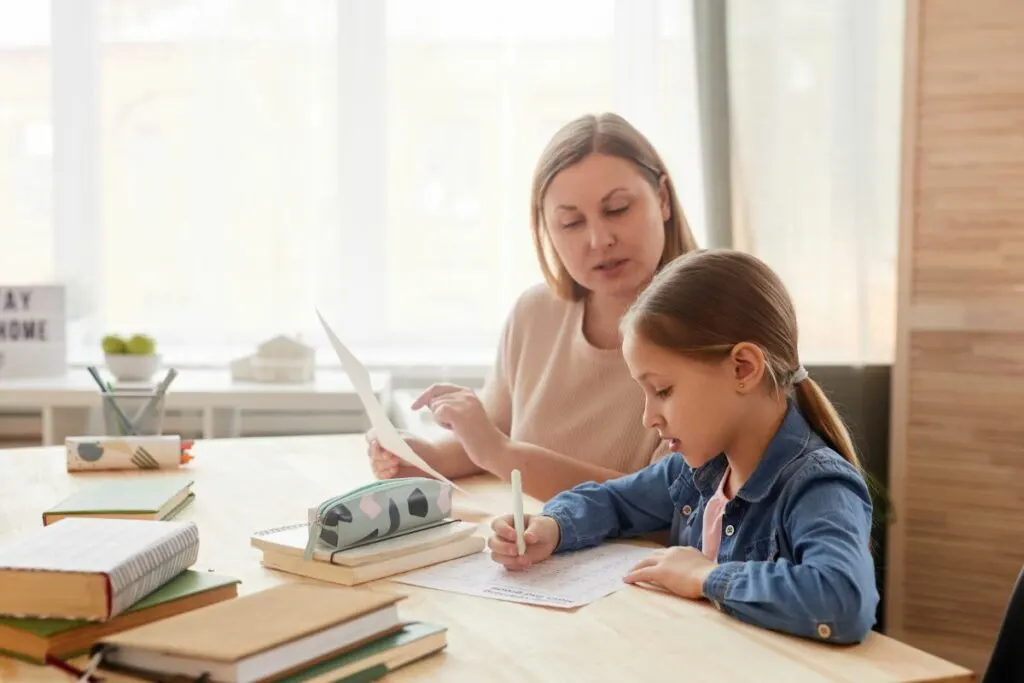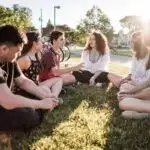In the bustling metropolis of New York City, the decision to homeschool comes with a unique set of considerations and regulations.
There are more regulations in the Empire State than in a lot of other states around the USA, which means that you have to have a solid understanding of the legal framework for homeschooling if you’re going to be successful.

This article serves as a complete guide to homeschooling in NYC, looking at the intricacies of legal compliance, exploring local cooperative learning opportunities, and highlighting educational resources tailored for homeschooling families in the state.
Understanding New York’s Homeschooling Laws
Legal Requirements
The first thing that you need to know before homeschooling in New York is that it is one of the more heavily regulated states when it comes to home education.
The state has a strict set of guidelines for homeschooling parents who need to adhere to homeschooling legally.
These regulations include submitting a notification of intent, an Individualized Home Instruction Plan (IHIP), keeping records of instruction, and complying with specific days, hours, and subject requirements.
On top of this, your children will have to take an annual assessment every year with designated standardized tests that you can administer.
Don’t let the strict regulations put you off, though; we’ll run through everything you need to know in detail so you can decide if homeschooling in New York is the right choice for you and your family.
Notification Process
If you are looking to begin homeschooling your child or children in New York, you have to submit a notice of intent to homeschool to the superintendent of your district by July 1st.
However, if you’re starting in the middle of the school year, you have to send your notice within 14 days of starting your homeschool.
If you live in New York City, then you will need to submit this notice to the New York City Department of Education’s office for homeschooling.
All your communication will go through this office whether you’re in Brooklyn, Staten Island, or any of the areas in between.
Home Instruction Plan Submission
As well as a notification of intent to homeschool, you also have to provide your local school district with an Individualized Home Instruction Plan (IHIP) every year by August 15th. This will include your child’s age, name, and grade.
As well as your child’s details, you will need to include your syllabus, materials, and textbooks that you will be using.
You will also need to plan the dates that you will be submitting a quarterly report and your annual assessments.
Luckily, there are forms that you can find online that will help you fill in these details.
Whilst it seems like a lot, these requirements will help you enter the school year feeling more prepared because you’ve already had to find all of your materials.
Day, Hour, And Subject Requirements
You will have to keep detailed records of your child’s attendance in homeschool and demonstrate you’ve been instructing your child for the equivalent of 180 days per year, 900 hours of school per year if your kid is in grades 1-6, and 990 hours of school after that.
You don’t need to send these records anywhere unless specifically asked by the district superintendent, but it’s good to keep on top of them just in case.
There are also grade-specific subject requirements, which we’ve outlined below:
Grades K-12
- Patriotism and Citizenship
- About Substance Abuse
- Traffic Safety (including bike safety)
- Fire Safety
- US and New York History and Constitutions (at least once before grade 9)
Grades 1-6
- Arithmetic
- Reading
- Spelling
- Writing
- English
- Geography
- US History
- Science
- Health
- Music
- Visual arts
- Physical education
Grades 7-8
- English (2 credits)
- History and geography (2 credits)
- Science (2 credits)
- Mathematics (2 credits)
- Art (½ credit)
- Music (½ credit)
- Physical education (regularly)
- Health education (regularly)
- Practical arts (regularly)
- Library skills (regularly)
Grades 9-12
- Mathematics (2 credits)
- English (4 credits)
- Social studies, including American history, participation in government, and economics (4 credits)
- Science (2 credits)
- Art or music (1 credit)
- Health (½ credit)
- Physical education (2 credits)
- Electives (3 credits)
Note: 1 Credit is equal to 108 hours of education.
See also: How to calculate high school credits in homeschooling.
Quarterly Reports
Another aspect that makes New York one of the more heavily regulated states is the need to submit a report of your child’s progress and the material covered in each subject every quarter.
You will either need to provide a working grade or a narrative evaluation of each subject, depending on what suits your style better.
Annual Assessments
Finally, some kind of annual assessment is required every single year.
Whilst a lot of people homeschool because they don’t like the rigidity of annual assessments, these are just there to make sure that your child is progressing properly and your instruction is effective.
In the first 3 grades, you can either choose for your child to take standardized tests or you can submit a written narrative, which is a formal description of how well your child comprehends the material provided in each subject.
In grades 4-8, you will be required to submit standardized tests at least every other year.
For the years in between, you can either complete another standardized test or submit a narrative evaluation – it’s up to you.
However, once your child is in high school, standardized testing will be required every year.
Local Homeschool Co-Ops In New York City
Finding a supportive community is integral to the homeschooling experience, and New York City offers a variety of local homeschool co-ops where parents can connect, share resources, and foster a sense of camaraderie.
The “NYC Home Educators” emphasize collaborative learning experiences through regular meetups and workshops.
These events are not only a great bit of respite for parents and carers but also a great opportunity for kids to get together and socialize.
Additionally, “Brooklyn Homeschoolers” caters to the borough’s homeschooling families, organizing local outings and facilitating connections.
For those seeking online support, the “Homeschooling in New York” Facebook group serves as a virtual hub for advice, discussions, and building connections within the city’s homeschooling community.
These resources offer valuable avenues for parents to engage, share insights, and build a strong support system for themselves but also for their children.

Educational Sites In New York City
New York City is a treasure trove of educational opportunities, with renowned institutions that bring learning to life.
The Museum of Natural History stands as a testament to scientific curiosity, offering interactive exhibits that engage young minds with the wonders of the natural world.
The Intrepid Sea, Air, & Space Museum, docked on the Hudson River, provides an immersive exploration of naval and aviation history.
For budding artists, the Children’s Museum of the Arts in Soho offers hands-on workshops that foster creativity in a dynamic environment.
If you would prefer something cost-free, the New York Public Library stands as an invaluable resource that often hosts education programs and events and provides access to a massive collection of books and resources.
For those who want to venture beyond the city, the Storm King Arts Center in the Hudson Valley presents an open-air museum with large-scale sculptures set against a stunning natural backdrop.
Admission is even free on selected days, making it ideal for those on a budget. Meanwhile, the Montauk Point Lighthouse Museum on Long Island offers a historical exploration of the region’s maritime heritage.
Final Thoughts
In concluding our exploration of homeschooling in New York City, it becomes evident that the city’s educational landscape is both vast and rich in resources for families opting for this alternative approach.
Although there are a lot of regulations and legal requirements that you need to adhere to, they will give you more structure and set you and your child up for success.
The city offers a dynamic environment conducive to a well-rounded home education.
With a myriad of museums, historic sites, and free learning options both within and beyond the city limits, homeschooling families in New York have the opportunity to foster a holistic and engaging educational experience for their children.
FAQs
How can I homeschool my child in NY?
Homeschooling in NY involves several steps. You need to submit a letter of intent, an Individualized Home Instruction Plan (IHIP), and quarterly reports.
You must also maintain attendance records and have your child assessed annually. The New York State Education Department provides detailed guidelines and forms on its website to help you navigate the process.
How much does homeschooling cost in NY?
The cost of homeschooling in NY can vary. There are no specific fees for registering with the state, but you may incur expenses for educational materials, resources, and activities.
Some families choose to invest in curriculum packages or online courses, while others create their own materials. It’s essential to plan a budget based on your preferences and educational goals.
How many hours are required to homeschool in NY?
In New York, there isn’t a set number of hours required for homeschooling. However, it is expected that instruction time is “substantially equivalent” to the hours of instruction in public schools.
This works out as 180 days per year, 900 hours of school per year if your kid is in grades 1-6, and 990 hours of school after that.
- Homeschooling In High School: Pros And Cons - February 24, 2024
- How Do I Withdraw My Child From School To Homeschool? - February 23, 2024
- How To Not Go Crazy Homeschooling Kids: A Guide For Frazzled Parents - February 22, 2024









Leave a comment